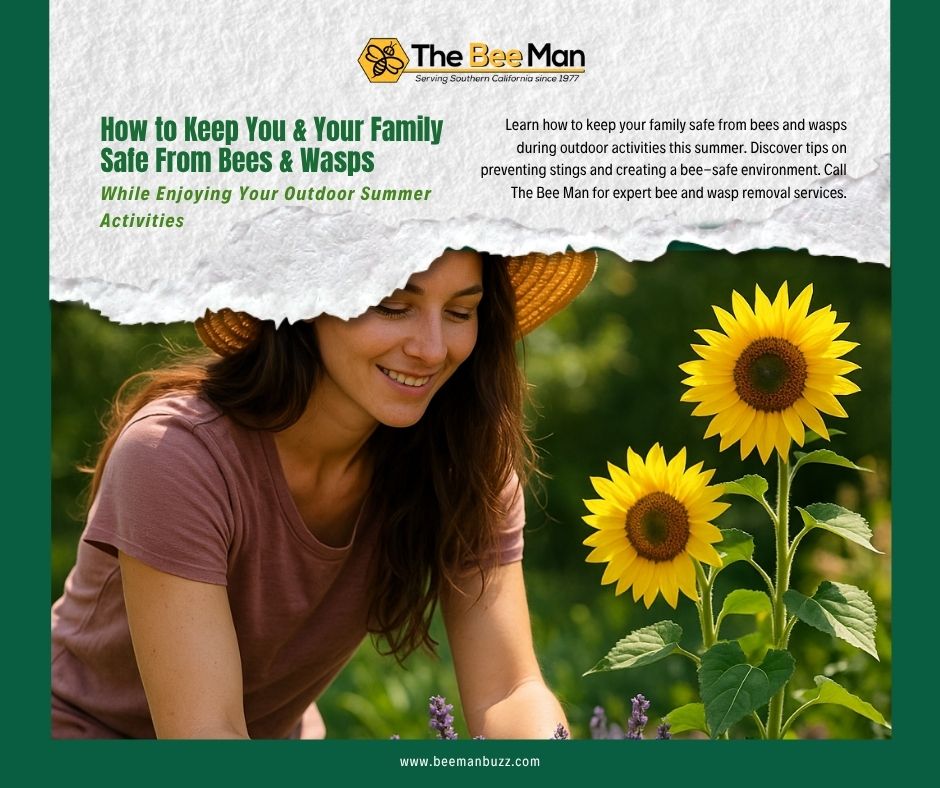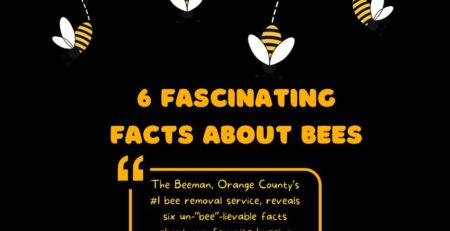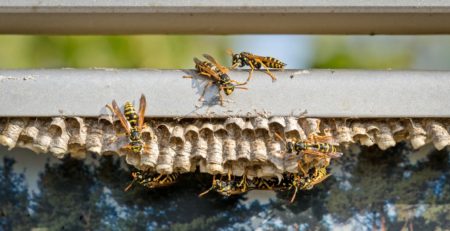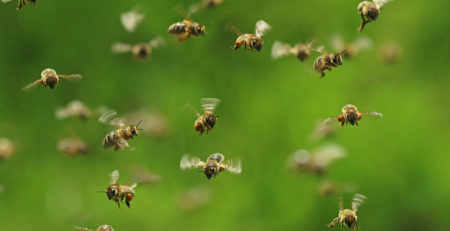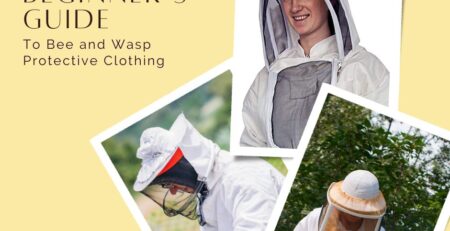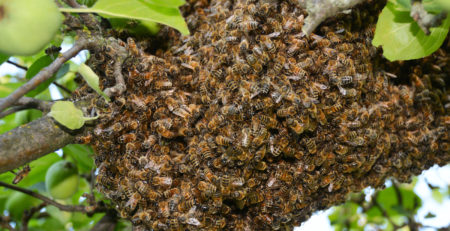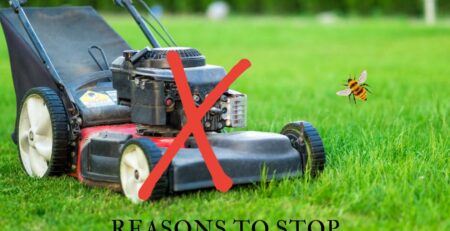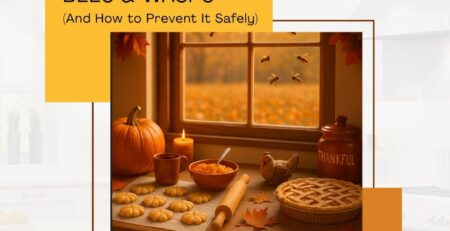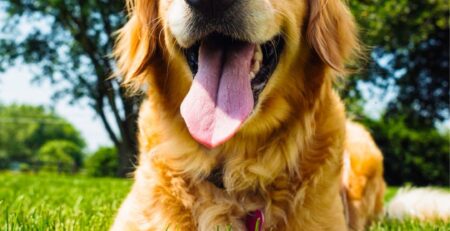How to Keep You and Your Family Safe From Bees and Wasps While Enjoying Your Outdoor Summer Activities
As summer rolls in, it’s time for picnics, BBQs, and outdoor fun with friends and family. While these activities are exciting, they can also attract uninvited guests—bees and wasps. These stinging insects play an essential role in the ecosystem, but they can pose risks if not handled properly. In this blog, we’ll explore practical tips to help you safely enjoy your outdoor activities while keeping bees and wasps at bay. Plus, we’ll share how you can create a bee-friendly environment that attracts pollinators without creating any conflicts!
1. Understand Bee and Wasp Behavior
Knowing the difference between bees and wasps, as well as their behaviors, can help you stay safe. Bees, like honeybees, are typically non-aggressive and focused on collecting nectar and pollen. However, if they feel threatened or their hive is disturbed, they may sting in self-defense.
Wasps, on the other hand, are generally more aggressive and can sting multiple times. Wasps are often attracted to sugary foods and beverages, which is why they tend to show up around picnics and BBQs. Yellowjackets, a type of wasp, are particularly notorious for their aggressive behavior.
2. Keep Food and Drinks Covered
Bees and wasps are attracted to food, especially sweet, sugary items like fruit, soda, and desserts. When having a picnic or BBQ, make sure to cover food and drinks when not in use. Consider using lidded containers or wraps to keep your food secure and reduce the chance of attracting stinging insects.
3. Create a Safe Space for Bees
While you want to avoid attracting wasps, you can actually help bees by creating a bee-friendly space nearby. Planting flowers like lavender, sunflowers, and other bee-friendly blooms can help attract pollinators away from your food. Bees will be busy foraging, which keeps them less interested in your picnic or BBQ.
- Tip: You can place a shallow dish of water near your event to help keep bees hydrated. Bees are naturally drawn to water sources but ensure it’s a shallow dish to prevent drowning.
4. Avoid Fragrant Scents
Wasps and bees are often attracted to strong scents, especially sweet-smelling perfumes, lotions, and fragrant flowers. While it’s tempting to wear your favorite fragrance on a summer day, it could be attracting more than just attention. Consider opting for unscented personal care products to help reduce your risk of attracting unwanted insects.
5. Be Cautious Around Nests
If you’re enjoying outdoor activities in your backyard or a public park, be aware of any visible wasp or bee nests. Wasps often build their nests in places like tree branches, under eaves, and in sheltered areas. Honeybee hives are typically found in hollow trees or man-made structures like sheds or attics. If you spot a nest near your picnic or BBQ, it’s best to keep a safe distance and call a professional for safe removal.
- Tip: If you’re unsure of the location of a nest, pay attention to where bees and wasps are flying. If you see a high volume of activity in one area, it’s likely there’s a nest nearby.
6. Keep Calm if Stung
If you or someone else gets stung, remain calm. Avoid swatting at the insect, as this can provoke them. For bee stings, remove the stinger as quickly as possible using a flat object (like a credit card), as bees leave their stingers behind. Apply a cold compress to reduce swelling and use home remedies like baking soda or aloe vera for relief.
For wasp stings, apply ice to the area and take over-the-counter antihistamines if needed to reduce swelling and pain. Be aware of any allergic reactions, including difficulty breathing, swelling of the face or throat, or dizziness. If these symptoms occur, seek medical attention immediately.
7. Have an Emergency Plan
For those with known allergies to bee or wasp stings, always carry an epinephrine auto-injector (EpiPen) and make sure others at your event know how to use it. If you are unsure about potential allergies or need help understanding your level of risk, consult with a healthcare provider before attending large outdoor events.
8. Professional Bee and Wasp Removal Services
If you’re dealing with a bee or wasp infestation near your property, it’s best to contact professional bee and wasp removal experts. While DIY methods may seem tempting, it’s important to remember that removing nests can be dangerous and might disturb the bees or wasps, leading to aggressive behavior. Professionals like The Bee Man specialize in humane bee and wasp removal, ensuring both people and pollinators are safely protected.
Conclusion
Bees and wasps are an essential part of our ecosystem, but when they become a threat during outdoor activities, it’s important to know how to keep yourself, your family, and your guests safe. By understanding their behavior, using preventative measures, and creating a bee-safe environment, you can enjoy your outdoor fun without the risk of unwanted stings.
Remember, when dealing with nests or persistent stinging insects, always call the experts to ensure safe removal. Contact The Bee Man for professional bee and wasp removal in Orange County to handle any infestations safely and humanely.

